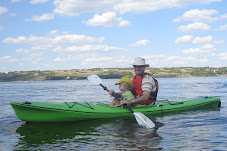Blogs are now used in a large variety of different contexts, from presidential campaigns to personal diaries. If we are interested in using blogs in language education, then it helps to think about what makes a good blog, and what makes a good blogging assignment.
On what makes a good blog, Will Richardson (author of Blogs, Wikis and Podcasts) suggests that real blogging involves deep reflection and personal growth over a period of time. Such 'complex blogs' involve 'extended analysis and synthesis over a longer period of time that builds on previous posts, links and comments'. Take a look at his evaluation blogging in education contexts, it's worth a read.
Ideally, a 'blogging assignment' should include more than just posting to a blog. Blogs are about participating in communities, and so it is important to think about relevant sources (e.g. web sites and other blogs), link to these from your posts, and provide others with feedback (e.g. in the form of comments). In their study of student blogging, Ducate and Lomicka (needs library login) divide the process into two stages: one of blog reading, the other of posting to blogs. This seems like a sound idea, as their students were able to gain some insight into blogging conventions before they began posting themselves.
If you're interested in learning about blogging conventions, then it will definitely help to read some blogs (you can start with the ones in this blog's blogroll). What conventions can you identify?
Sunday, January 24, 2010
Tuesday, January 19, 2010
New Technologies: Getting acquainted
Last night we shared our accounts of technology use in language teaching and learning, and listening to these, I was struck by how a variety of technologies are now becoming more and more pervasive in language education. I was also struck by the variety in terms of engagement and level of confidence with technology: even though most of us use computers regularly, we do not all feel that we can take a basic familiarity with computers for granted, it seems to me. And the question of how best to use technology in the classroom is one that we clearly all need to explore (it's one of those questions that occupies some people for a very long time, so there is no surprise there!). A good starting point for resolving some of these issues is to delve into the various writing available on the internet, which describes experiences with technology in the language learning context. Both academic literature and practical accounts in educators' blogs can be helpful here.
Here is a list of online resources that I suggest you visit if you want to get a sense of the kind of things that are being done with technology in educational contexts (these are also linked in the blogroll of this blog):
A good way to digest the ideas that you encounter is to post your thoughts to your blog. When you come across an interesting reading, summarize it for the community and add your own thoughts. Might the approach work with your own students? What problems do you foresee, and how would you overcome them? Feedback and comments from others will be helpful to refine your ideas.
Last night, I mentioned an application of Flickr for vocabulary learning (described by Nik Peachey, here), and ideas for using Google Earth in class (collated by Tom Barrett, here).
Here is a list of online resources that I suggest you visit if you want to get a sense of the kind of things that are being done with technology in educational contexts (these are also linked in the blogroll of this blog):
- Nik Peachey's blogs (here and here) - good for practical evaluations of technological tools
- Larry Ferlazzo - lots of links to useful web sites
- Will Richardson's blog - especially good if you are interested in promoting new literacies
- Graham Stanley's blog - has a special interest in Second Life (also see Gavin Dudeney)
- Tom Barret - Educational technology in an English school
- Language Learning and Technology - an online, peer-refereed academic journal: lots of evaluations of technological applications here
A good way to digest the ideas that you encounter is to post your thoughts to your blog. When you come across an interesting reading, summarize it for the community and add your own thoughts. Might the approach work with your own students? What problems do you foresee, and how would you overcome them? Feedback and comments from others will be helpful to refine your ideas.
Last night, I mentioned an application of Flickr for vocabulary learning (described by Nik Peachey, here), and ideas for using Google Earth in class (collated by Tom Barrett, here).
Tuesday, January 12, 2010
A fresh start

The new year is getting underway now, and we've already finished our first lesson in New Technologies in Language Teaching. We've set up our blogs (which you can find listed in the sidebar, just scroll down a bit), rolled up our sleeves and are ready for the work to begin!
Image by James Jordan http://www.flickr.com/photos/jamesjordan/ / CC BY-ND 2.0
Subscribe to:
Comments (Atom)
